Welcome to Reading Revisited, a place for friends to enjoy some good old-fashioned book chat while revisiting the truth, beauty, and goodness we’ve found in our favorite books.
Reading Revisited is not just a yearly booklist and Substack Read Along Group. As amazing as those two things are, we also have in person and virtual book clubs. We’d love you to join.
Here’s what one of our in person book club members has to say…
Two years ago, I jumped at the chance to join an in-person book club after I saw the fabulous lineup of books for the year. Some years ago I had decided to read great books, sometimes following the Close Reads podcast discussions, sometimes picking up a classic book just to work through on my own. I have always wanted to be part of a book club but never had the right situation, so to start in with the Reading Revisited booklist, wonderful like-minded women, and intelligent book guides was like a dream come true. I make book club reading a priority, not only because the books are truly excellent and worth reading, but because I have developed meaningful friendships. I love having history with a group of ladies who has experienced the same stories and characters together over time. Reading Revisited makes it easy to start up an in-person book club with the list of books at your fingertips. Just add friends who like to read and some munchies, and you've got something special to look forward to every month.
-Meredith Daniel
Now to the books…
How lucky we are that literature is not limited to only one form! At the risk of sounding cheeky, I (
, your December guide1) think that if novels were the only form of literature with which we could nourish our souls, it would be as if we could only nourish our bodies with five course meals. While multi-course meals are absolutely delightful, they simply do not serve for every function nor do they hold the monopoly in food based pleasure. Sometimes we need protein dense snacks throughout the day to balance our blood sugar, sometimes quick treats are needed to revive our energy and engagement, and sometimes snacks (like charcuterie) allow acquaintances to bloom into mature relationships by striking the right balance between formal and casual. In the same way, short stories, plays, and poetry compliment longer form works of prose, allowing encounters with complete works of literature to be incorporated into the spare moments of our days, reviving interest though diversity and approachability, and facilitating broad encounters with the minds and ideas of authors which we might otherwise appreciate only narrowly.Since December and January are two months in which holidays, weather, and illness can throw off our regular reading rhythms, Kelsie, in her great wisdom, has set these months aside for us to savor several snack sized works of literature. But though they be but little, they are fierce! I am beyond excited that she has allowed me to share my favorite work of poetry with you as this December’s main reading pick. However, because it is rather a short book, we will be pairing this work of poetry with an equally wonderful and equally concise book about poetry.
Therefore it is my great pleasure to announce that our first December book will be A Poetry Handbook: A Prose Guide to Understanding and Writing Poetry by Mary Oliver. Mary Oliver is a modern poet, and a pretty good one. Yet in my opinion her greatest work might not even be her poetry, but this handbook on poetry. This beauty is short and sweet. Like 121 pages short and sweet. In it, Oliver deftly achieves what we all wish our high school English teacher had managed to do; namely, she teaches us how to speak the language of poetry. After all, it is only by understanding the language of a thing that we can come to understand the thing itself, and by understanding it, to love it. She teaches the reader how to recognize a well crafted line: to notice alliteration and assonance, to scan meter and know how various meters effect meaning, to see punctuation as a measure of space and time, to sense tone, to love imagery, and to truly know the “rules” of language. After all, you have to know the rules in order to recognize when they can be broken to great effect… and when they ought to be honored.
If you have ever read poetry and not really loved it because you just didn’t get it, this book is for you. A Poetry Handbook is essentially a condensed “grammar” of poetry, giving you the tools to move into the dialectic and rhetoric stages of understanding and discussing poetry in all its forms. It is so worth it. And I’m not the only one who thinks so!
Reading Revisited’s sweet friend
from the Born of Wonder Podcast and Substack also has high praise for Mary Oliver and her work:“Mary Oliver may have had the enviable problem of being just a little too quotable. How many times have you seen, “Tell me, what is it you plan to do /with your one wild and precious life?” on a magnet, an Instagram post, a blog bio? She’s inspirational, she’s memorable, and she’s often dismissed as a little too popular, a little too quaint. As New Yorker writer Ruth Franklin notes, “perhaps because she writes about old-fashioned subjects—nature, beauty, and, worst of all, God—she has not been taken seriously by most poetry critics.” But whatever the critics say, Oliver was incredibly successful at her craft. She published her first collection, “No Voyage and Other Poems,” in 1963, when she was twenty-eight; “American Primitive,” her fourth full-length book, won the Pulitzer Prize, in 1984, and “New and Selected Poems” won the National Book Award, in 1992. Franklin goes on to explain the mystical quality of Oliver’s writing, perhaps accounting for why her words are a balm to so many. “She tends to use nature as a springboard to the sacred, which is the beating heart of her work. Indeed, a number of the poems in this collection are explicitly formed as prayers, albeit unconventional ones. As she writes in “The Summer Day”: “I don’t know exactly what a prayer is. I do know how to pay attention, how to fall down into the grass, how to kneel down in the grass, how to be idle and blessed, how to stroll through the fields, which is what I have been doing all day.” And like the great mystic Simone Weil, Oliver had a theologian’s understanding of life: “Attention is the beginning of devotion,” she wrote. For me, Oliver’s poetry has demanded attention. It has stilled my mind. It has called deep to my nature-longing, moors wandering soul, not shirking the violence of the world, but calling me into communion with the rise and fall of all things, of life and death, and my perfect place among these inevitabilities. I encourage everyone to read her poetry, not with the eye of the critic (though I think a critic would also find much to discuss), but with the eye of a pilgrim, ready to receive. When we open Oliver’s Poetry Handbook, let us also be in a state to receive, as writers and readers, the advice and introspection of someone who (to borrow the words of another one of my favorite poets, R.S. Thomas) “loved the open air, loved the things of this earth, and had eyes to both see and hear them.” “Instructions for living a life. Pay attention. Be astonished. Tell about it.” -Mary Oliver, from the poem “Sometimes”
“Everyone knows that poets are born and not made in school,” begins Mary Oliver in her slim volume, A Poetry Handbook. However much this sounds like a reading deterrent to those of us untouched by the poetic muse, I assure you, it is anything but. Oliver quickly adds: “Still…. Whatever can’t be taught, there is a great deal that can, and must, be learned. This book is about the things that can be learned.”
With these words, we poets and non-poets alike, are warmly invited to walk alongside Oliver as she teaches us the great deal about poetry that can be learned.
Oliver begins at the beginning: that is, preparing one’s heart and mind to the poetic craft. She exhorts her readers to a life of excellence by way of the practical. First, read poetry. Second, imitate it.
From there, Oliver teaches the poem’s architecture and construction, beginning with its smallest unit: sound. She moves outward from there to line, given forms, and free verse. Only then does she tackle more ephemeral matters such as tone, voice, and imagery. Oliver then concludes as she began, in the practical. She discusses the essential work of revision, the benefits of workshops, and the absolute necessity of “profound and unbroken solitude.”
What I find so magnificent when I read A Poetry Handbook is the profound and personal ways it speaks to me beyond the craft of poetry—I am no poet—or even of creative writing, where I do find my vocation. Yes, Oliver is teaching us how to identify rhyming patterns: couplets, quatrains, and Spenserian stanzas. Yes, she is showing us how to distinguish iambic tetrameter from iambic trimeter (both of can be found in our upcoming poetry pick!2 So stay tuned for December Part 2!).
And this is great fun! I’ve happily “wasted” much time counting syllables, marking stresses, labeling rhyme patterns, and hunting images. And never have I lamented afterwards that it was time ill spent (unlike my media scrolling time).
But what Oliver is really teaching within the pages of A Poetry Handbook, is to pay attention. As the French philosopher and mystic, Simone Weil, suggests3: attention is a moral act.
What a double portion, then, Reading Revisited is gifting its community by reading together A Poetry Handbook. I hope you will find, as I have, your heart and mind enlivened as you put yourself at Oliver’s feet to learn those “sweet and correct formalities” of poetry. Moreover, I pray your whole, eternal, image-bearing self would become more attentive, and thus enlarged, to the poiema4 of creation and all it contains.
I hope you are as excited as I am to revisit A Poetry Handbook in community! But please save some of your excitement for the real star of the show, which will be revealed in “December Part 2!” If you have any last minute guesses which gem of poetry we will be reading together in December, make sure to drop a comment below!
Check out the previous Book Drop Day Posts:
Welcome to Book Drop Day
September (Book About Books)
October (American Classic)
November (Gothic Novel)
Until next time, keep revisiting the good books that enrich your life and nourish your soul.
In Case You Missed It:
On the Podcast:
ep. 57: Bookish Bio of Griffin Gooch (a Bookish PhD Student)
ep. 58: One Year Anniversary of the Reading Revisited Podcast
What We’re Reading Now/Next:
June
Trust by Hernan Diaz
July
Everything Sad is Untrue by Daniel Nayeri
August
Northanger Abbey by Jane Austen
A Few Reminders:
If you are wanting to get in on the in person or virtual community please contact us!
We have turned on paid subscriptions which will allow you to support the work we are doing here as well as receive Read Along Guide PDFs each month and voice recordings of the Read Along Guides.
If you would like to make a small contribution to the work we’re doing here at Reading Revisited, we invite you to do so with the Buy (Us) a Coffee button below. We so appreciate your support!
*As always, some of the links are affiliate links. If you don’t have the books yet and are planning to buy them, we appreciate you using the links. The few cents earned with each purchase you make after clicking links (at no extra cost to you) goes toward the time and effort it takes to keep Reading Revisited running, and we appreciate it!
It is our habit, here at Reading Revisited, to post weekly Read Along Guides. We like to think of these “RAGs” as bookmarked notes, or “just some things I couldn’t help but notice,” which we don’t want to forget to bring up with our friend next time we get together to discuss the book.
Each month has been assigned a “guide” to write these weekly Read Along Guides.
Blue Rooms, by Morri Creech, is a book of poetry that would also make an companion to A Poetry Handbook. It is a book of ekphrastic poems. Ekphrasis means “description” in Greek. In poetry, ekphrasis is the practice of writing a poem inspired by a work of art often, but not limited to, painting, sculpture, or photography.
Expanded upon by thinkers and writers: Iris Murdoch, Ian McGilchrist, and David Brooks (and others, I’m sure).
Ancient Greek for “a thing made,” “something composed,” or, as found in the New Testament, Eph 2:10, “workmanship:” For we are God’s poiema, created in Christ Jesus for good works, which God prepared beforehand, that we should walk in them. (ESV)


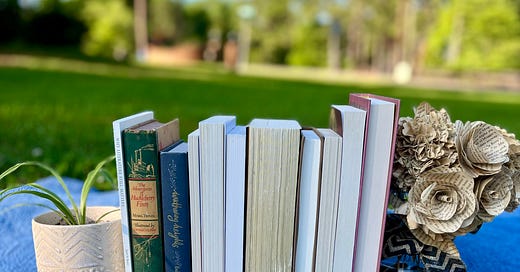






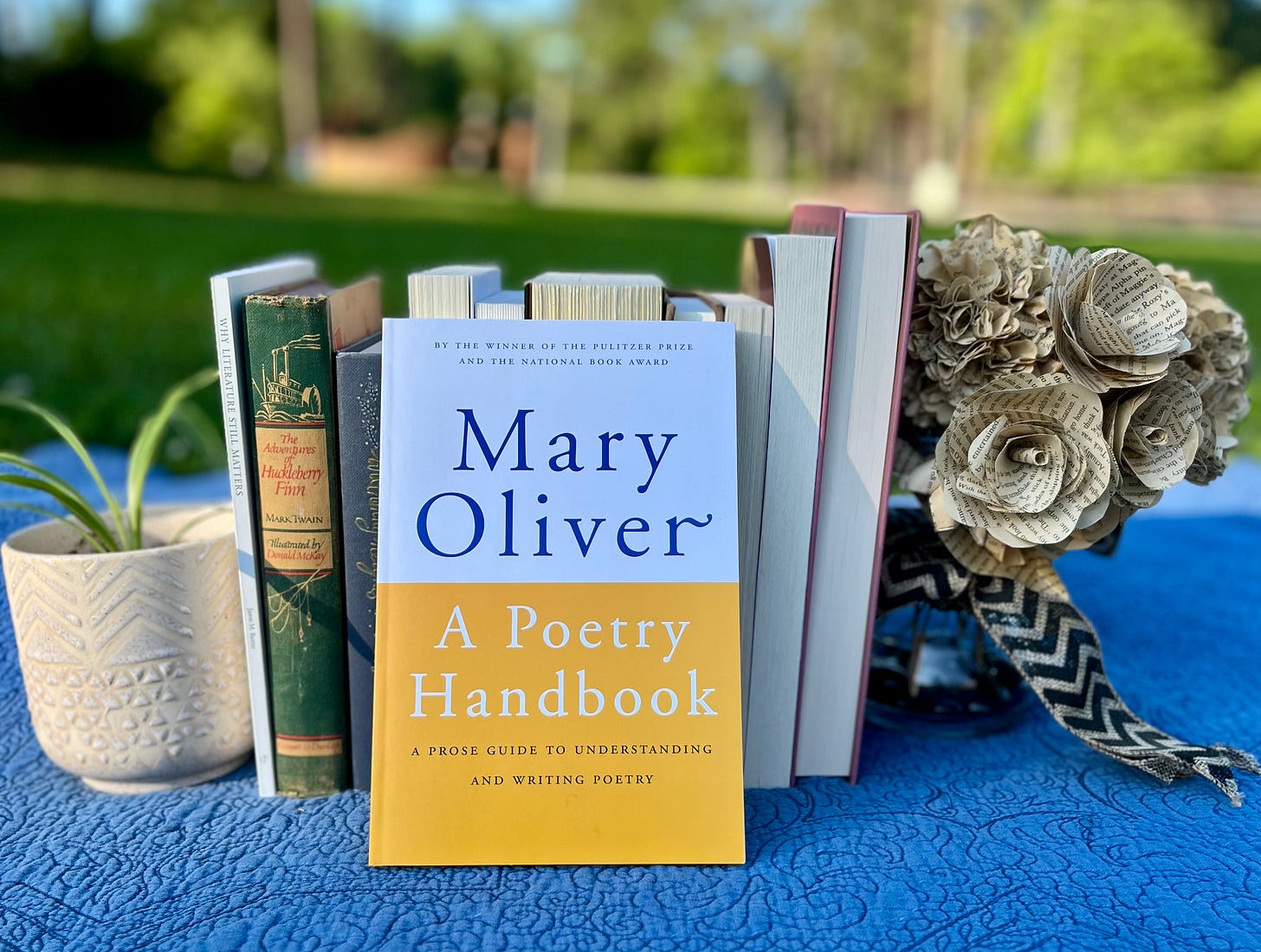
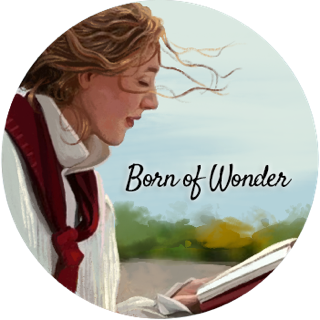
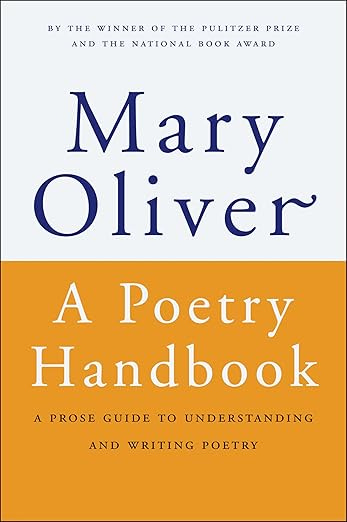
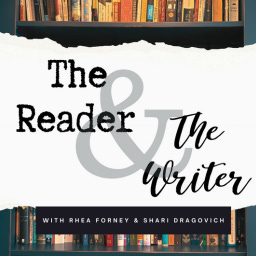
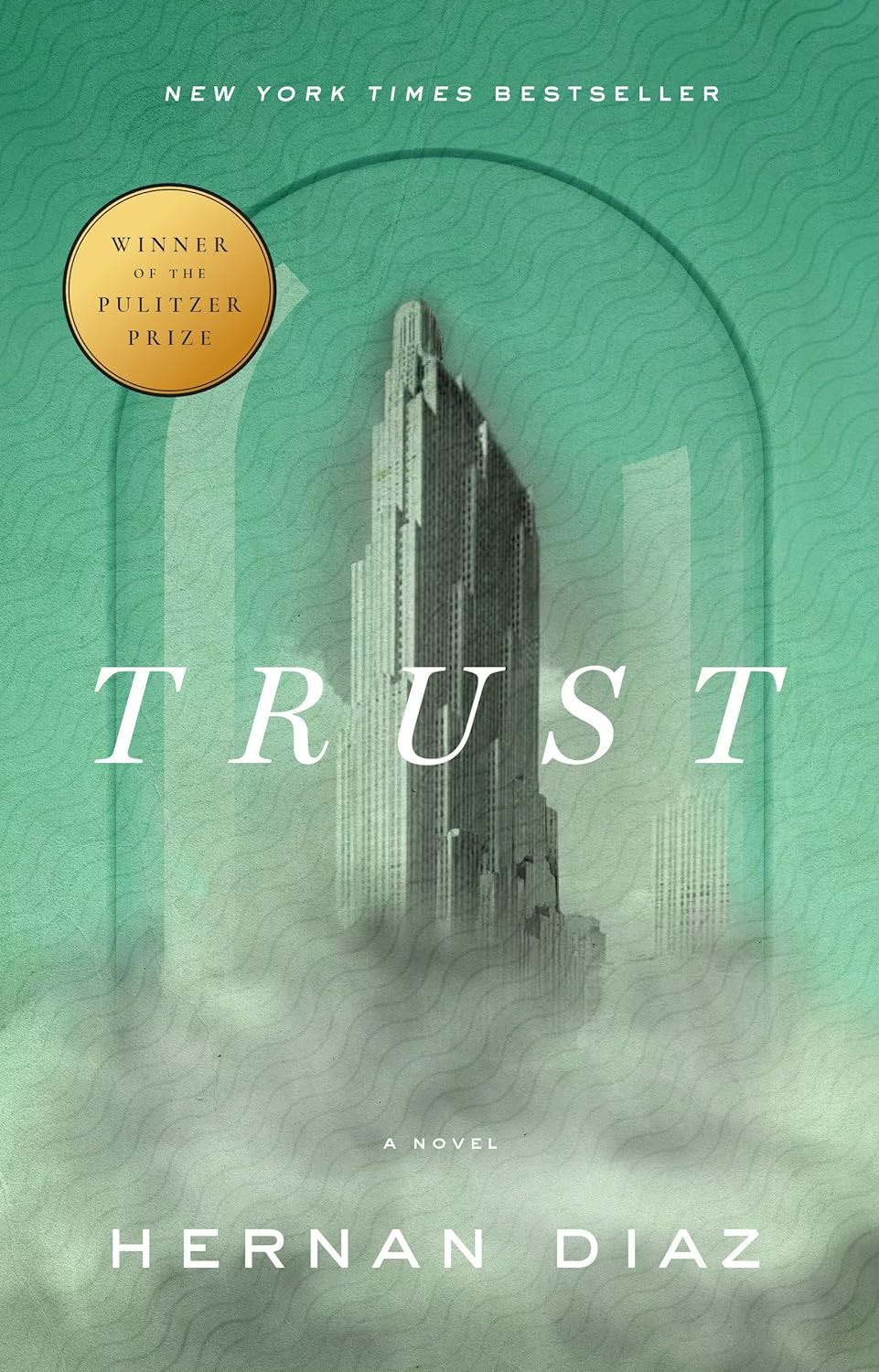
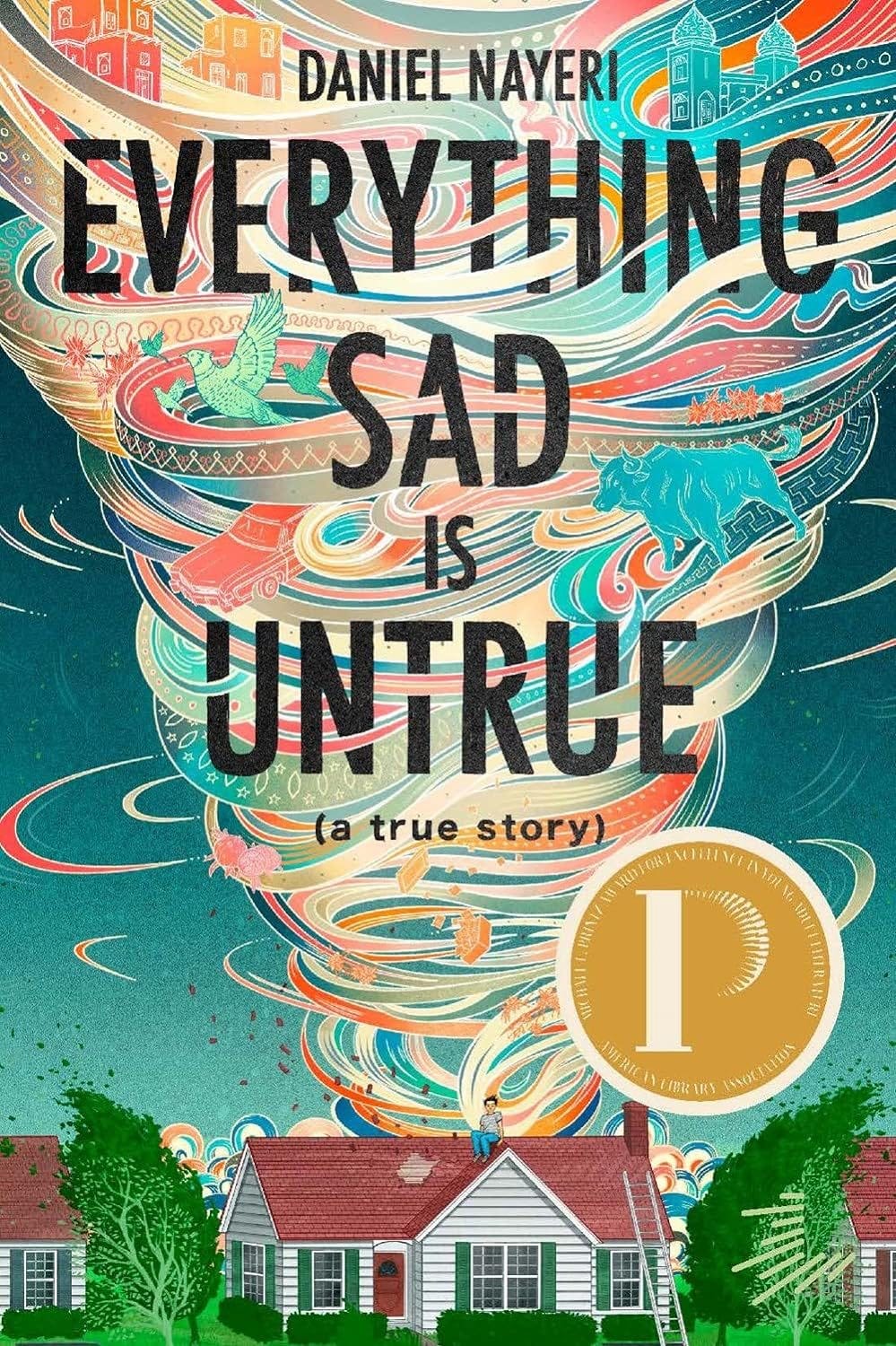
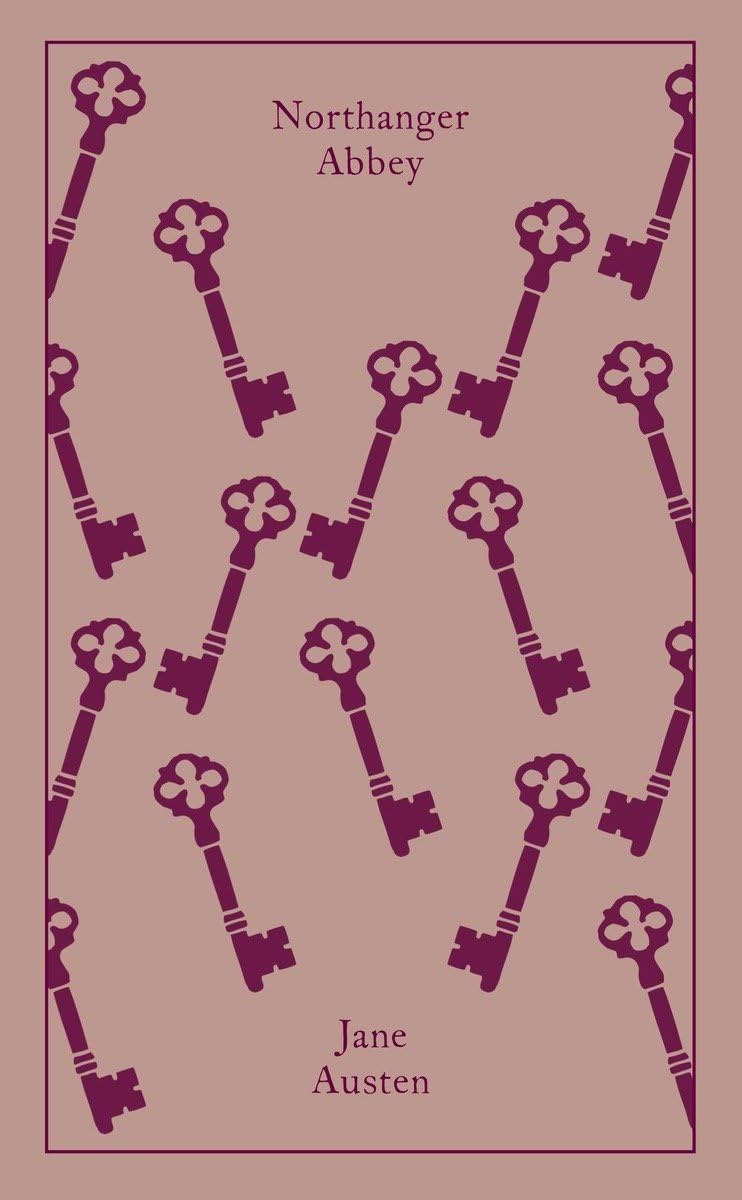



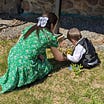
The soft animal of my body is excited to burrow into this book😂
Ooh, this one is totally new to me, but I am eager to pick it up!